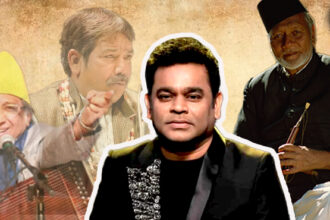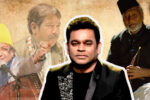Rahul Gandhi often speaks of opening his Mohabbat ki Dukaan across India — spreading compassion and unity. Yet, the irony is stark. Why does that same Mohabbat ki Dukaan shut its doors when it comes to the Rashtriya Swayamsevak Sangh (RSS)?
Is mere ideological or political difference enough to erase basic humanity?
This Vijayadashami, as the RSS completed a hundred years, the Congress ecosystem and its left-liberal allies appear more rattled than ever. Their frustration isn’t with what the RSS does — it’s with why it still exists.
For the Congress IT cell and its army of online trolls, “bhakt” and “sanghi” are not just slurs — they’re dehumanizing labels. For them, wishing death upon RSS members once became so “normal” that it barely felt like an act of hate anymore.
The hundred-year ache
As India celebrated 100 years of the RSS — an organization that has worked tirelessly in nation-building, education, relief work, and cultural revival — the so-called liberal and secular camp went into meltdown.
Congress’s official social media handle accused the RSS of having “treason in its DNA.” Supriya Shrinate, head of the Congress IT cell, mocked that while Congress fought for India’s freedom, the RSS supported the British — followed by a long post questioning why anyone should praise the RSS.
Priyank Kharge, son of Congress president Mallikarjun Kharge, joined in too — branding RSS and BJP as anti-patriotic, communal, and authoritarian.
Not to be left behind, the Communist Party of India (Marxist) condemned the release of a postage stamp honoring RSS’s centenary, calling it a “disrespect to the Constitution.” CPI(M) leader John Brittas echoed that sentiment, describing the event as a “national disgrace.”
Kerala Chief Minister Pinarayi Vijayan followed suit, claiming that the RSS “never participated in the freedom struggle” and has always represented a divisive ideology.
Meanwhile, familiar names from the Left ecosystem — former TMC MP Jawhar Sircar, Hotmail founder (and professional provocateur) Sabeer Bhatia, and Congress sympathizers like Arpi T Sharma — spent the day lamenting why the RSS was being honored at all.
For them, “bhakt” or “sanghi” isn’t a political identity. It’s a category of sub-humans.
When hatred turned inhumane
The normalization of hate against RSS supporters isn’t new. We don’t even have to look far back.
During the COVID-19 pandemic, 85-year-old swayamsevak Narayan Dabhadkar from Nagpur gave up his hospital bed to save a younger patient, saying, “I’ve lived my life. Let him live — he has young children.”
Three days later, Dhabadkar passed away. Instead of honoring his sacrifice, Indian Express and Loksatta ran stories suggesting the event was fabricated.
That’s how far the propaganda machine goes — even “fact-checking” has become a weapon to distort stories of humanity if the protagonist happens to be from the RSS.
The media’s strategy is simple: Highlight minor controversies around Hindu groups, bury their good work, and manipulate public perception until “Hindu” and “hate” seem synonymous.
This isn’t journalism anymore — it’s soft genocide denial. The Hindu victim is made invisible. The persecuted is blamed for his own persecution.
When “liberals” prayed for death of Sanghis
Back in 2021, several “liberal” celebrities and influencers dropped the mask of civility completely.
Jewellry designer Farah Khan Ali publicly wished for the death of BJP and RSS supporters’ loved ones. Actor Siddharth mocked the killings of BJP workers in post-poll violence in Bengal. Actress Mona Ambegaonkar wished a “slow and painful death” to RSS and BJP supporters. And during the farmers’ protest, videos surfaced of people literally shouting “Modi mar ja tu.”
This wasn’t satire or anger — it was open dehumanization. When “Sanghi” becomes a synonym for “subhuman,” violence and hatred stop feeling wrong. That’s the real “Idea of India” for the liberal elite — one where nationalist Hindus have no place, and empathy is reserved only for those who fit their ideology.
The forgotten humanity
The moral fabric of a society is tested not by how it treats its friends, but its ideological opponents.
Yet, this ecosystem has made it normal to celebrate the death of RSS workers and ridicule those who serve the nation selflessly.
The irony? The same people who cannot bear to hear the word “RSS” are often the first to receive relief from its volunteers during disasters.
Be it floods, earthquakes, or the pandemic — RSS swayamsevaks were the ones distributing food, medicines, and essentials across India, from remote tribal villages to border areas.
The real reason for their rage
And today, as the RSS marks 100 years of existence on Vijayadashami, the Left-liberal establishment trembles.
Because what they wanted to erase — is still alive, stronger than ever. What they mocked as obsolete — is shaping the next generation. In universities once dominated by leftist thought, nationalist student groups like ABVP are now rising fast.
The ideological shift is undeniable. The left’s moral monopoly is breaking, and the Congress ecosystem’s loudest scream today is the cry of defeat.
The RSS, which they wished to see buried long ago, now stands taller than ever — firm, rooted, and thriving.
For them, that’s the ultimate humiliation. For India, it’s poetic justice.









